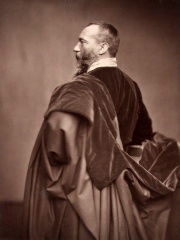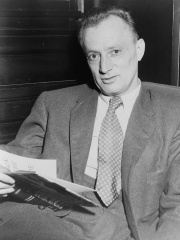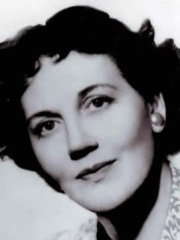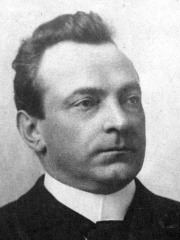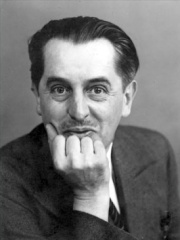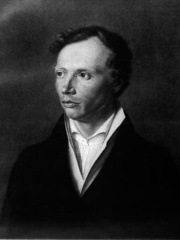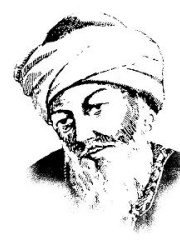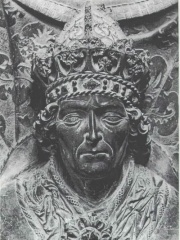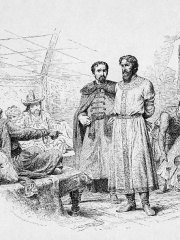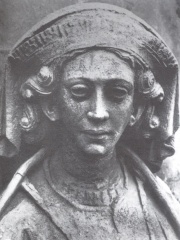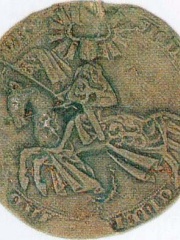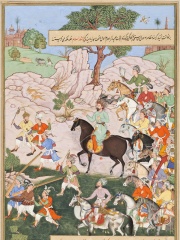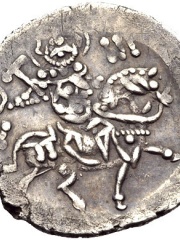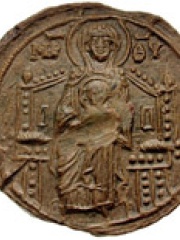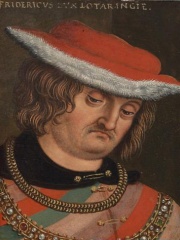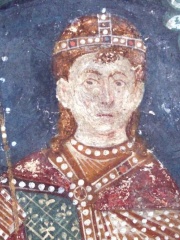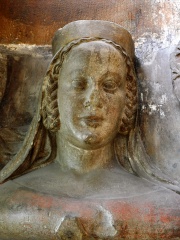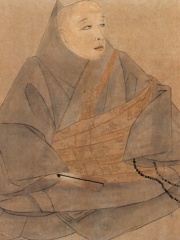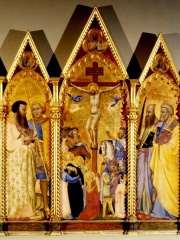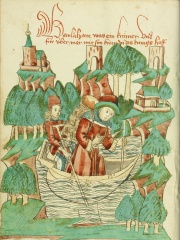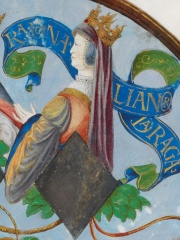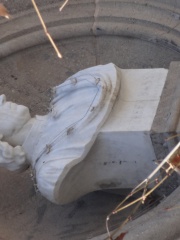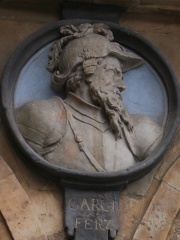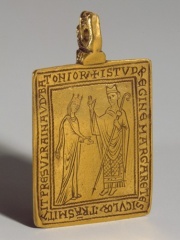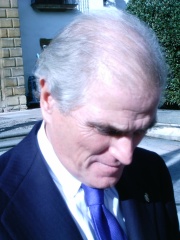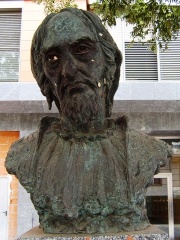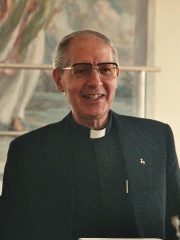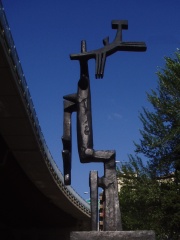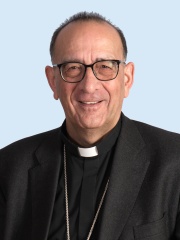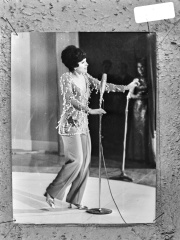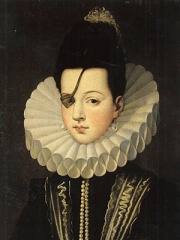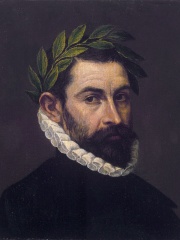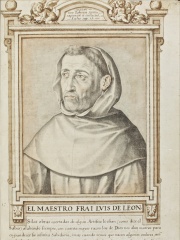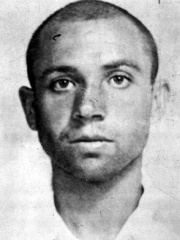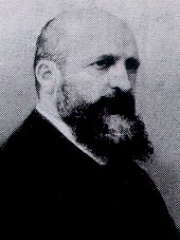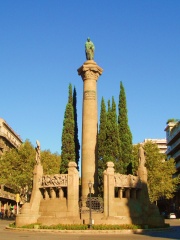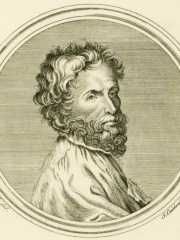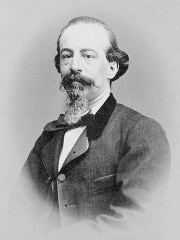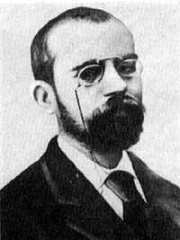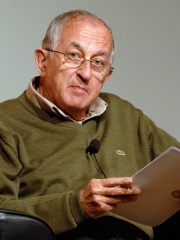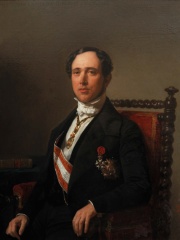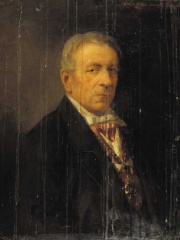WRITER
Don Juan Manuel
1282 - 1348
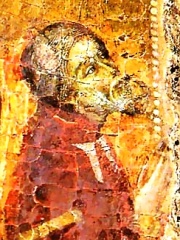
 Don Juan Manuel
Don Juan Manuel
Don Juan Manuel (5 May 1282 – 13 June 1348) was a Spanish medieval writer, nephew of Alfonso X of Castile, son of Manuel of Castile and Beatrice of Savoy. He inherited from his father the great Lordship of Villena, receiving the titles of Lord, Duke and lastly Prince of Villena. He married three times, choosing his wives for political and economic convenience, and worked to match his children with partners associated with royalty. Juan Manuel became one of the richest and most powerful men of his time, coining his own currency as the kings did. Read more on Wikipedia
His biography is available in 29 different languages on Wikipedia. Don Juan Manuel is the 1,935th most popular writer (down from 1,471st in 2024), the 669th most popular biography from Spain (down from 514th in 2019) and the 71st most popular Spanish Writer.
Memorability Metrics
Page views of Don Juan Manuel by language
Among WRITERS
Among writers, Don Juan Manuel ranks 1,935 out of 7,302. Before him are Daṇḍin, Jean-Baptiste Alphonse Karr, Nelson Algren, Mary Norton, Chuck Palahniuk, and Alexander Polyhistor. After him are Jakub Bart-Ćišinski, Maria Shriver, Eustache Deschamps, Jean Paulhan, Ludwig Uhland, and Sanai.
Most Popular Writers in Wikipedia
Go to all RankingsDaṇḍin
501 - 700
HPI: 63.45
Rank: 1,929
Jean-Baptiste Alphonse Karr
1808 - 1890
HPI: 63.45
Rank: 1,930
Nelson Algren
1909 - 1981
HPI: 63.44
Rank: 1,931
Mary Norton
1903 - 1992
HPI: 63.44
Rank: 1,932
Chuck Palahniuk
1962 - Present
HPI: 63.43
Rank: 1,933
Alexander Polyhistor
100 BC - 75 BC
HPI: 63.42
Rank: 1,934
Don Juan Manuel
1282 - 1348
HPI: 63.42
Rank: 1,935
Jakub Bart-Ćišinski
1856 - 1909
HPI: 63.42
Rank: 1,936
Maria Shriver
1955 - Present
HPI: 63.42
Rank: 1,937
Eustache Deschamps
1346 - 1406
HPI: 63.41
Rank: 1,938
Jean Paulhan
1884 - 1968
HPI: 63.41
Rank: 1,939
Ludwig Uhland
1787 - 1862
HPI: 63.41
Rank: 1,940
Sanai
1080 - 1131
HPI: 63.41
Rank: 1,941
Contemporaries
Among people born in 1282, Don Juan Manuel ranks 8. Before him are Louis IV, Holy Roman Emperor, Öz Beg Khan, Margaret of France, Queen of England, Eric Magnusson, Tode Mongke, and Alexios II of Trebizond. After him are John XIV of Constantinople, Duwa, Frederick IV, Duke of Lorraine, and Stefan Konstantin. Among people deceased in 1348, Don Juan Manuel ranks 13. Before him are Blanche of Valois, Chungmok of Goryeo, Emperor Hanazono, Bernardo Daddi, Barlaam of Seminara, and Eleanor of Portugal, Queen of Aragon. After him are Ferrer Bassa, Charles, Duke of Durazzo, Maso di Banco, John, Duke of Randazzo, and Rudolf IV, Margrave of Baden-Pforzheim.
Others Born in 1282
Go to all RankingsLouis IV, Holy Roman Emperor
POLITICIAN
1282 - 1347
HPI: 75.88
Rank: 2
Öz Beg Khan
POLITICIAN
1282 - 1341
HPI: 71.65
Rank: 3
Margaret of France, Queen of England
COMPANION
1282 - 1318
HPI: 64.64
Rank: 4
Eric Magnusson
NOBLEMAN
1282 - 1318
HPI: 64.55
Rank: 5
Tode Mongke
RELIGIOUS FIGURE
1282 - 1287
HPI: 63.99
Rank: 6
Alexios II of Trebizond
POLITICIAN
1282 - 1330
HPI: 63.89
Rank: 7
Don Juan Manuel
WRITER
1282 - 1348
HPI: 63.42
Rank: 8
John XIV of Constantinople
RELIGIOUS FIGURE
1282 - 1347
HPI: 63.11
Rank: 9
Duwa
POLITICIAN
1282 - 1307
HPI: 60.16
Rank: 10
Frederick IV, Duke of Lorraine
NOBLEMAN
1282 - 1329
HPI: 59.59
Rank: 11
Stefan Konstantin
POLITICIAN
1282 - 1322
HPI: 56.70
Rank: 12
Others Deceased in 1348
Go to all RankingsBlanche of Valois
COMPANION
1316 - 1348
HPI: 66.13
Rank: 7
Chungmok of Goryeo
POLITICIAN
1337 - 1348
HPI: 65.31
Rank: 8
Emperor Hanazono
POLITICIAN
1297 - 1348
HPI: 65.27
Rank: 9
Bernardo Daddi
PAINTER
1290 - 1348
HPI: 64.37
Rank: 10
Barlaam of Seminara
PHILOSOPHER
1290 - 1348
HPI: 64.11
Rank: 11
Eleanor of Portugal, Queen of Aragon
COMPANION
1328 - 1348
HPI: 63.61
Rank: 12
Don Juan Manuel
WRITER
1282 - 1348
HPI: 63.42
Rank: 13
Ferrer Bassa
PAINTER
1285 - 1348
HPI: 61.44
Rank: 14
Charles, Duke of Durazzo
POLITICIAN
1323 - 1348
HPI: 61.41
Rank: 15
Maso di Banco
PAINTER
1250 - 1348
HPI: 60.17
Rank: 16
John, Duke of Randazzo
POLITICIAN
1317 - 1348
HPI: 57.98
Rank: 17
Rudolf IV, Margrave of Baden-Pforzheim
POLITICIAN
1300 - 1348
HPI: 57.44
Rank: 18
In Spain
Among people born in Spain, Don Juan Manuel ranks 669 out of 3,355. Before him are García Fernández of Castile (938), Jesús Navas (1985), Margaret of Navarre (1134), Ramón Calderón (1951), Moses de León (1250), and Adolfo Nicolás (1936). After him are Julio González (1876), Abraham bar Hiyya (1070), Juan José Omella (1946), Santiago Cañizares (1969), Salomé (1939), and Ana de Mendoza, Princess of Eboli (1540).
Others born in Spain
Go to all RankingsGarcía Fernández of Castile
POLITICIAN
938 - 995
HPI: 63.52
Rank: 663
Jesús Navas
SOCCER PLAYER
1985 - Present
HPI: 63.48
Rank: 664
Margaret of Navarre
POLITICIAN
1134 - 1182
HPI: 63.48
Rank: 665
Ramón Calderón
BUSINESSPERSON
1951 - Present
HPI: 63.43
Rank: 666
Moses de León
POLITICIAN
1250 - 1305
HPI: 63.43
Rank: 667
Adolfo Nicolás
RELIGIOUS FIGURE
1936 - 2020
HPI: 63.42
Rank: 668
Don Juan Manuel
WRITER
1282 - 1348
HPI: 63.42
Rank: 669
Julio González
PAINTER
1876 - 1942
HPI: 63.41
Rank: 670
Abraham bar Hiyya
MATHEMATICIAN
1070 - 1145
HPI: 63.41
Rank: 671
Juan José Omella
RELIGIOUS FIGURE
1946 - Present
HPI: 63.40
Rank: 672
Santiago Cañizares
SOCCER PLAYER
1969 - Present
HPI: 63.39
Rank: 673
Salomé
SINGER
1939 - Present
HPI: 63.37
Rank: 674
Ana de Mendoza, Princess of Eboli
NOBLEMAN
1540 - 1592
HPI: 63.37
Rank: 675
Among WRITERS In Spain
Among writers born in Spain, Don Juan Manuel ranks 71. Before him are Alonso de Ercilla (1533), Luis de León (1527), Miguel Hernández (1910), Pedro Antonio de Alarcón (1833), Jacint Verdaguer (1845), and Cristóbal de Morales (1600). After him are José Zorrilla (1817), Leopoldo Alas (1852), Juan Goytisolo (1931), Juan Donoso Cortés (1809), Ángel de Saavedra, 3rd Duke of Rivas (1791), and Abu Hamid al-Gharnati (1080).
Alonso de Ercilla
1533 - 1594
HPI: 63.77
Rank: 65
Luis de León
1527 - 1591
HPI: 63.66
Rank: 66
Miguel Hernández
1910 - 1942
HPI: 63.64
Rank: 67
Pedro Antonio de Alarcón
1833 - 1891
HPI: 63.63
Rank: 68
Jacint Verdaguer
1845 - 1902
HPI: 63.55
Rank: 69
Cristóbal de Morales
1600 - 1655
HPI: 63.55
Rank: 70
Don Juan Manuel
1282 - 1348
HPI: 63.42
Rank: 71
José Zorrilla
1817 - 1893
HPI: 63.36
Rank: 72
Leopoldo Alas
1852 - 1901
HPI: 63.34
Rank: 73
Juan Goytisolo
1931 - 2017
HPI: 63.31
Rank: 74
Juan Donoso Cortés
1809 - 1853
HPI: 63.24
Rank: 75
Ángel de Saavedra, 3rd Duke of Rivas
1791 - 1865
HPI: 63.20
Rank: 76
Abu Hamid al-Gharnati
1080 - 1170
HPI: 63.16
Rank: 77

